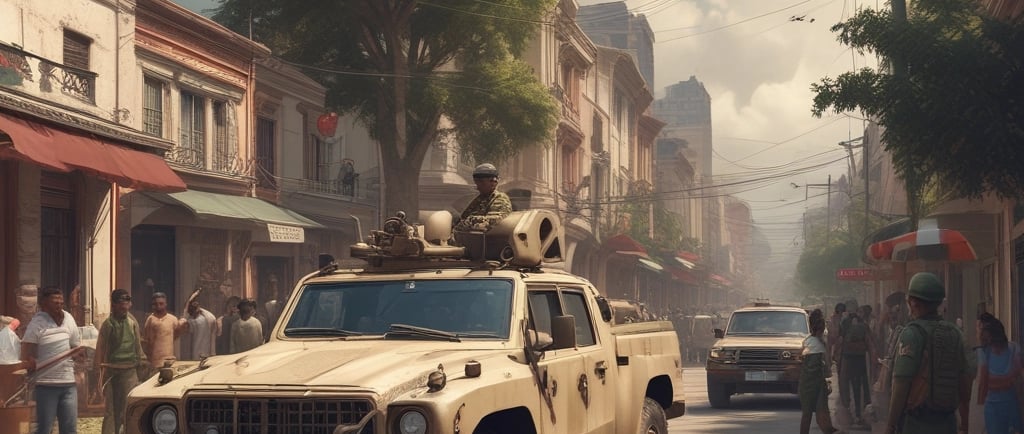Elections Right Now
Your Global Election Tracker.
Join our mailing list for updates and analyses on future elections.
October 2025: Madagscar military coup and right wing gains
In October 2025, Madagascar saw a brutal military power grab, while right wing forces gained power in Europe and Latin America. We bring you five global election take aways from October 2025.
Editor
11/7/20252 min read


October 2025 was a seismic month on the world political stage, as elections from Europe to Africa, and Asia to South America, delivered results that are rewriting the rulebook. For seasoned observers and new followers alike, the message is clear: global politics is in ferment, with new forces rising, entrenched powers holding firm, and surprising outcomes shaking the status quo. Here’s the sharpest analysis to help you cut through the noise.
1. Madagascar military coup
Perhaps the most jarring headline came not from a ballot box, but from a barracks. Madagascar’s president Andry Rajoelina was toppled by an elite military unit, a sharp reminder that democracy remains fragile, especially where institutions are weak and tensions simmer. This stark pivot away from constitutional politics casts a long shadow and warns of instability’s unpredictable cost.
2. Right-wing to the Power
Nationalism and populism didn’t just knock on the doors—they marched right in. In the Czech Republic, the ANO party cemented its hold by riding a wave of nationalist fervor, signaling that anti-establishment messages still resonate deep within Europe. Meanwhile, across the Atlantic, Argentina’s libertarian firebrand Javier Milei and his party La Libertad Avanza cruised to a landmark legislative victory. Both signal electorates hungry for disruption and radical change, powering right-wing currents to the fore.
3. Historic Milestones
History was made in Japan, where Sanae Takaichi broke centuries-old glass ceilings as the nation’s first female prime minister—an emblem of slow but meaningful change in Asia’s political epicenter. South America registered its own upheaval as Bolivia’s socialist MAS-IPSP, which dominated for two decades, was decisively defeated, signaling the electorate’s appetite for a reset and a fresh political script.
4. Surprises and Fragmented Votes
Voter volatility was on vivid display in the Netherlands and Ireland. The Dutch parliament fractured, with centrist and far-right parties both pressing gains—a microcosm of populism and polarization fracturing traditional party systems worldwide. In Ireland, independent candidate Catherine Connolly swept to the presidency in a landslide, embodying a voter rebellion against the political mainstream and a growing quest for authenticity over party loyalty.
5. Election Survivors: Power Holds Firm
Despite the winds of change elsewhere, some leaders cling tightly to power. Cameroon’s Paul Biya, Africa’s longest-serving head of state, defied expectations with victory yet again, while Ivory Coast’s Alassane Ouattara secured another term. These political survivors demonstrate the endurance of entrenched elites even as calls for democratization echo.
What This Means Going Forward
October’s elections were not isolated events—they are part of a global pattern revealing the tides shaping democracy’s future. Rising populism challenges established orders; long-term rulers illustrate political inertia; historic breakthroughs hint at slow progress; coups highlight fragility; and fragmented electorates speak to deep societal divisions. Understanding these dynamics is key for anyone who wants to grasp where the world is headed next.
Stay with ElectionsRightNow.com as we continue to decode this seismic era of political change. Because in this age of flux, every vote counts—and every election tells a story worth following.
Read more:
Madagascar suspended from the African Union
https://www.theguardian.com/world/2025/oct/15/madagascar-to-swear-in-military-leader-as-president-on-fridayMilei takes the ballots in Argentina
Czech Babis to form new government with Right Wing coalition
https://www.euronews.com/2025/11/03/czech-election-winner-andrej-babis-signs-coalition-deal-with-right-wing-partiesVictory to Dutch centrist Jetten
https://www.bbc.com/news/articles/cq6z5e5y55eoIrish Connoly landslide
https://www.reuters.com/world/left-wing-connolly-set-win-irish-presidency-opponents-concede-2025-10-25/
#electionsrightnow #justvoted #October2025 #GlobalPolitics #ElectionTrends
Contacts
Socials
Subscribe to our newsletter
About us:
We are a global election tracker.
We follow global affairs trough elections.
We use and experiment with AI supported technologies in the work with this website.
